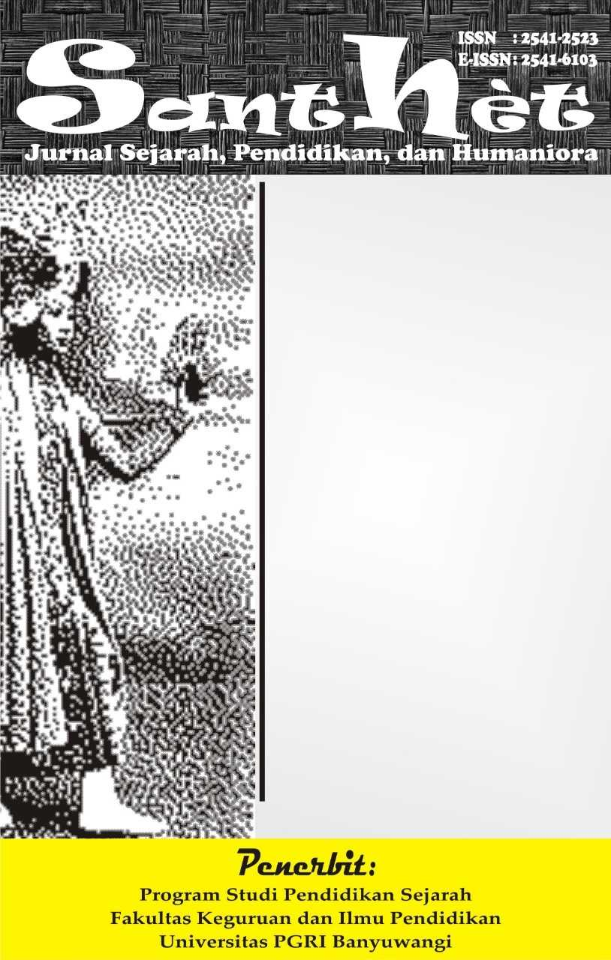The Perspective of Christian Applied Ethics on Euthanasia
Pandangan Etika Terapan Kristen Tentang Euthanasia
DOI:
https://doi.org/10.36526/santhet.v9i6.6483Keywords:
Christian Ethics, Euthanasia, Bioethics, Love (Agape), Sanctity of Life, Moral TheologyAbstract
The issue of euthanasia has become one of the most controversial topics in modern bioethics because it concerns a person’s right to life and death. In the context of the Christian faith, this issue becomes even more complex as it touches upon theological aspects related to the sanctity of life and God’s sovereignty over human existence. Euthanasia is generally understood as an intentional medical act to end a person’s life, either at the patient’s own request (voluntary euthanasia) or without explicit consent (non-voluntary euthanasia), with the aim of relieving what is considered unbearable suffering. This study employs a qualitative descriptive approach using theological literature review and applied Christian ethics methods. Data were collected from academic sources such as theological journals, bioethics publications, and accredited scientific articles. The analysis examines biblical perspectives, Christian moral principles, and social and legal practices related to euthanasia in various countries, including Indonesia. The findings indicate that Christian applied ethics rejects active euthanasia, as such an act contradicts the principle of the sanctity of life that originates from God. However, passive euthanasia—the withdrawal of medical treatment that no longer provides benefit—may be considered ethically acceptable when carried out with a motivation of love rather than despair, and grounded in faith that entrusts life fully to God. Thus, human suffering is not to be erased through death, but rather understood through the cross of Christ as part of the journey of faith toward eternal hope. The implications of this study highlight the importance of Christian religious education in guiding believers to understand Christian moral values amid the challenges of contemporary medical ethics. The Church is called to uphold the sanctity of life, provide pastoral care for terminal patients, and affirm that every life, even in suffering, remains precious in the sight of God.
References
Creswell, J. W. (2018). Research Design: Pendekatan Metode Kualitatif, Kuantitatif, dan Campuran (Terj.). Yogyakarta: Pustaka Pelajar.
Downie, Jocelyn & Schuklenk, Udo. (2021). Social determinants of health and slippery slopes in assisted dying debates: lessons from Canada. Journal of Medical Ethics, 47(10): 662–669 (https://jme.bmj.com/content/medethics/47/10/662.full.pdf, diakses pada tanggal 2 Oktober 2025).
Gajah, R.A., & Marbun, R.C. (2025). Etika Eutanasia Dalam Agama Kristen: Keputusan Moral Di Tengah Penderitaan. Pediaqu: Jurnal Pendidikan Sosial dan Humaniora, 4(1): 1841-1852 (https://publisherqu.com/index.php/pediaqu/article/view/1790/1664, diakses pada tanggal 5 Oktober 2025).
Krippendorff, K. (2018). Content Analysis: An Introduction to Its Methodology. Los Angeles: SAGE Publications.
Kristyanto, T.H.W., & Sianipar, Rikardo P. (2022). Pastoral Konseling Berbasis Pemuridan bagi Pasien Terminal: Perawatan Paliatif Sekaligus Pemberdayaan. Jurnal Apokalupsis, 13(1): 40-69. https://www.ojs.hits.ac.id/index.php/OJS/article/view/43/34 (Diakses pada tanggal 1 Oktober 2025).
Geisler, N.L. (2017). Christian Ethics: Contemporary Issues & Options. Grand Rapids: Baker Academic.
Gustafson, J.M. (2019). Ethics from a Theocentric Perspective. Chicago: University of Chicago Press.
Moleong, L. J. (2017). Metodologi Penelitian Kualitatif. Bandung: Remaja Rosdakarya.
Mulyana, D. (2020). Metodologi Penelitian Kualitatif: Paradigma Baru Ilmu Komunikasi dan Ilmu Sosial Lainnya. Bandung: PT Remaja Rosdakarya.
Saleleubaja, J., & Santoso, S. (2024). Meningkatkan Kestabilan Kesehatan Mental dan Spiritual untuk Menghadapi Tantangan Hidup Modern dalam Perspektif Kristen. Excelsis Deo, 8(1): 14-41 (https://e-journal.sttexcelsius.ac.id/index.php/excelsisdeo/article/view/158/143, diakses pada tanggal 29 September 2025).
Siregar, C. (2016). Pluralism and Religious Tolerance In Indonesia: An Ethical-Theological Review Based on Christian Faith Perspectives. :349-358 (https://journal.binus.ac.id/index.php/Humaniora/article/view/3589, diakses pada tanggal 28 September 2025).





























